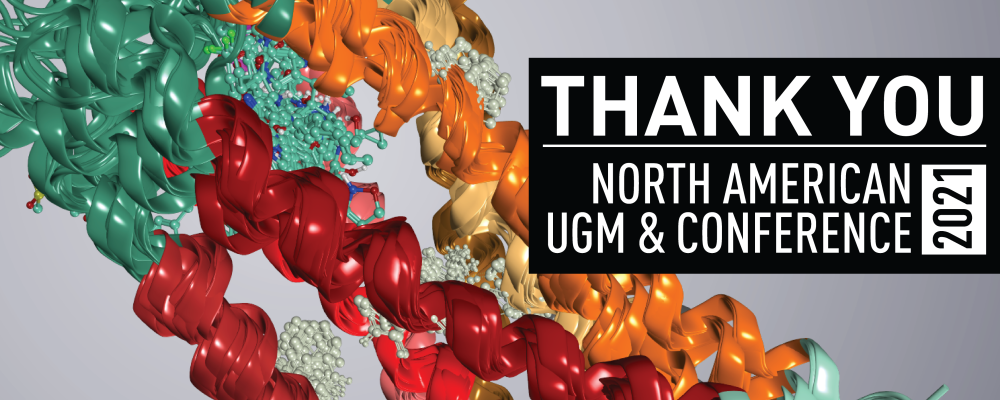The North American UGM & Conference 2021 will take place online on September 22-23. This is a 2-day online event based in the Eastern Time (ET) zone, consisting of morning workshops, a lunchtime poster session, and afternoon scientific presentations on diverse topics associated with computational chemistry and biology, drug discovery and design. The first day (September 22, 2021) focuses on applications in biological therapeutics, protein modelling and engineering, whereas the second (February 21, 2026) concentrates on small molecule drug discovery, medicinal chemistry and chemoinformatics applications.
Protein Engineering / Protein Properties / Developability / Hot Spot Analysis / Antibody Modeling / Humanization / Molecular Surfaces
Freya (Klepsch) Trasischker, Senior Applications Scientist,
Protein Alignments and Superposition / Loop and Linker Modeling / Homology Modeling / Protein- Protein Docking
Will Long, Principal Scientist,
Sandeep Kumar, Distinguished Research Fellow (Biotherapeutics) and Group Leader,
Fabrizio Comper, Scientific Director,
David Thompson, Senior Applications Scientist,
Maximilian Ebert, Scientific Services Manager,
Bellos Hadjivassiliou, Senior Principal Scientist,
Essam Metwally, Principal Scientist,
Francis Insaidoo, Associate Principal Scientist,
MOE Databases / Descriptors / Fingerprints / QSPR Modeling / Pharmacophore Modeling / Template-Forced Docking / Scaffold Replacement / MedChem Transformations
Sarah Witzke, Applications Scientist,
Pharmacophore Modeling / Docking / Fragment-based Design / Scaffold Replacement / R-Group Screening / Project Search / Protein-Ligand Interaction Fingerprints
Nadia (Huifang) Li, Applications Scientist,
Pat Walters, Senior Vice President Computation,
Huifen Chen, Senior Principal Scientist,
Mike Drummond, Scientific Applications Manager,
Maximilian Ebert, Scientific Services Manager,
Huan Rui, Senior Scientist,
Theresa Johnson, Associate Scientific Director,
David Mobley, Professor, Pharmaceutical Sciences and Chemistry,
If you would be interested in presenting a talk, please contact Raul Alvarez at .

